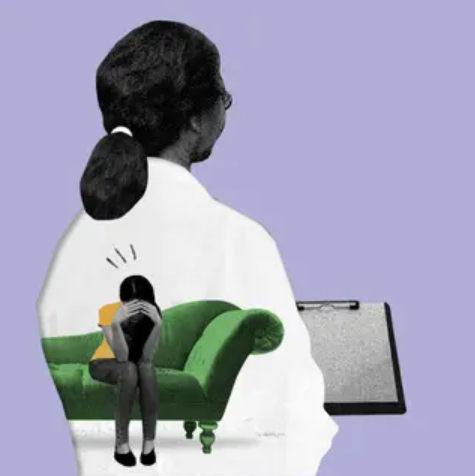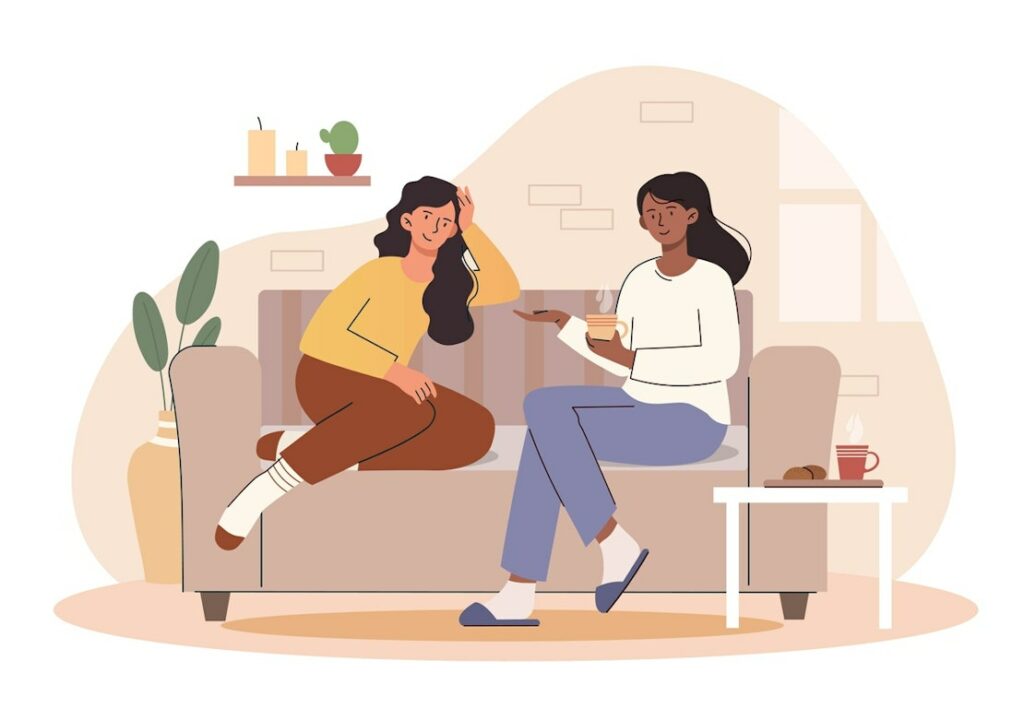
Objectifying people in relationships means treating them as objects rather than human beings —viewing them as a means to an end without any feelings or regard for their well-being. Objectification not only hurts people but also erodes the foundation of any meaningful relationship. Learn the signs of objectifying someone and how to stop doing it so that we can establish genuine and authentic connections. (Estimated reading time: 9 minutes)
“Objectification is above all exteriorization, the alienation of spirit from itself.”
– Nikolai A. Berdyaev
In today’s fast-paced and technology-driven society, it is all too easy to succumb to the temptation of treating individuals as objects, especially within relationships. We make snap judgments based solely on outward appearances, engage in behaviors like ghosting or breadcrumbing, and prioritize quantity over quality.
And it’s no wonder objectification is a growing tendency. The world population is rapidly growing, and we seek quick and easy ways to understand the people we’re dealing with.
People tend to default to using power, money, and physical attractiveness as their yardsticks. On a broader scale, we consider a person’s race, mannerisms, and other traits that tell us about their origin.
These projections are often not out of malicious intent but simply a byproduct of how our minds function. Cross-cultural expert Pellegrino Riccardi, born in the U.K. to an immigrant family from the south of Italy, described the human brain as lazy when assessing other people.
“The brain doesn’t want to do anything that is not absolutely necessary to survive – and to work with other cultures, when they are really different to yours, requires you to have a non-lazy brain. You have to challenge your assumptions, beliefs, and expectations,” Riccardi shared in an interview on The Dream Catcher Podcast.
The issue with putting people into neat little boxes based on their country of origin is that none of us have singular identities. When we reduce others to mere objects that exist solely for our convenience or to meet our predetermined criteria, we devalue their worth and disregard their inherent humanity.
This harmful mindset can result in superficial interactions and a lack of empathy. By reducing individuals to a checklist of traits, we deprive ourselves of the profound richness and depth that can be found in embracing someone as a complete and multifaceted individual.
It can also cause us to objectify others and position ourselves as contenders in the game of life, trying to win the approval of as many people as possible. In the process, we fail to cultivate deeper and more meaningful aspects of our being, such as kindness, compassion, and our instinct to love and contribute.
It comes as no surprise that many people today experience feelings of insignificance because they use these standards of power to measure their worth. Younger generations are most affected by this conditioning because they are exposed to the media’s celebrity and fame-obsessed culture.
I empathize with anyone who feels this way. I know what it’s like to feel objectified, having had spells of questioning my worth whenever others made snap judgments of me based on my appearance and without getting to know me.
This craving to be understood for who we truly are is primal. We all share a deep need to feel like we belong, are loved, and matter—that we are more than what meets the eye.
The good news is that we can prevent our value from being limited to our utility, even in the superficial construct we live in. It starts with acknowledging each person’s unique experiences, perspectives, and emotions and seeking to understand rather than judge.
By acknowledging people for who they are rather than what they can offer us, we can cultivate deeper connections built on trust, respect, and genuine love.
What does objectifying people in relationships mean, and why is it harmful?

Objectifying people in relationships involves treating them as objects rather than human beings, viewing them as a means to an end, without any feelings or regard for their wellbeing. We tend to reduce people to one or two desirable characteristics, such as money, power, or physical beauty, and we can also be defined by these symbols ourselves.
There are various ways to objectify an individual, such as silencing them, focusing solely on their physical appearance, or reducing them to their outward beauty. The original meaning of objectifying is making something abstract concrete, for example, how artists turn emotions into physical works of art.
While both men and women can be objectified, women are often the primary targets. From advertisements to movies, the sexual objectification of women is widespread in modern society. This pervasive issue has negative effects on the psychological development of young people, but many are unaware of its full extent.
Several feminist perspectives have been developed on this topic, with Martha Nussbaum’s list of identifying features of sexual objectification being one of the most renowned. This list was established in 1995 and includes criteria such as treating a person:
“as a tool for the objectifier’s purposes … as lacking in autonomy and self-determination … as lacking in agency … as interchangeable with other objects … as lacking in boundary-integrity … as something that is owned by another (can be bought or sold) … [and] as something whose experiences and feelings (if any) need not be taken into account.”
Objectification can harm people by depriving them of their autonomy and relegating them to objects of desire or usefulness. This behavior can cause dehumanization, a lack of respect, and the perpetuation of damaging stereotypes.
Objectifying individuals may also foster a culture that accepts discrimination, harassment, and violence rooted in gender, race, or other defining characteristics.
It’s crucial to acknowledge the humanity and uniqueness of every person and to interact with them in ways that demonstrate respect, dignity, and compassion rather than reducing them to mere objects or stereotypes.
Four signs of objectifying people in relationships
Identifying the signs of objectification to address is essential to overcome this behavior. Several common indicators can help us recognize objectification:
1. Shallow judgment: When we solely focus on physical appearance or material possessions, we objectify others by reducing them to mere objects of desire. This can be observed when we prioritize external attractiveness over personality or character traits.
2. Lack of empathy: Objectification often results in a lack of empathy. When we fail to consider another’s emotions, needs, or desires, we disregard their humanity and treat them as disposable.
3. Transactional mindset: Viewing relationships as transactions, where we expect something in return for our efforts, clearly indicates objectification. When we approach relationships with the mentality of “What can this person give me?” rather than “How can I contribute to their happiness?” we undermine the potential for genuine connections.
4. Disregard for consent: Objectification can also manifest in a lack of respect for boundaries and consent. When we prioritize our own desires without considering the comfort or consent of our partners, we objectify them by treating them as objects for our pleasure.
5. An ego-centric attitude: Certain types of people are more likely to objectify others. This type believes that the whole world revolves around them and their desires. They have an inflated sense of self-importance and feel entitled. They come across as selfish and unconcerned about how their actions and words affect the people around them.
Their shallowness and lack of empathy can leave you feeling invisible and uncared for. Their interests are usually centered on superficial things—glamor, looks, financial success, and status—there’s little or no heart.
Being aware of these signs is a step toward creating healthier and more respectful relationships.
The consequences of objectifying people in relationships

Objectification erodes the foundation of any meaningful relationship. Here are five specific consequences of objectifying people in relationships.
1. We disregard their humanity: When we perceive others solely as objects to fulfill our desires or meet our standards, we devalue their worth and disregard their inherent humanity. This can result in superficial interactions, emotional detachment, and a lack of empathy.
2. We don’t get to know the real them: Objectification fosters a shallow comprehension of others. By reducing individuals to their physical appearance or a mere checklist of qualities, we miss the depth and intricacy of their character and what makes them unique. We miss the opportunity to value their distinct experiences, perspectives, and emotions.
3. We create an imbalance of power: Objectifying our partners can create an imbalance of power within our relationships. When we prioritize our own needs and desires above the well-being of our partners, we fail to establish a foundation built on trust and mutual respect.
Consequently, this can lead to a detrimental cycle of manipulation, control, and emotional abuse, harming both individuals involved.
4. We don’t create safety in the connection: Emotional closeness requires safety and assurance so that others can freely express their thoughts, fears, and aspirations. However, objectification can instill a fear of judgment or dismissal, leading to emotional barriers and a lack of authentic connection.
How to foster genuine connections in relationships
To establish authentic connections, we must change our approach to relationships and move beyond objectifying individuals. This process begins with recognizing the multifaceted experiences, viewpoints, and emotions of others.
Here are some practical methods to cultivate genuine connections:
1. Develop empathy and hone active listening skills.
Empathy involves acknowledging and sharing the sentiments of another person. It plays a pivotal role in nurturing authentic connections. To cultivate compassion, listening actively to others without passing judgment or interrupting is essential. This means giving the other person your undivided attention, grasping their perspective, and validating their emotions.
Active listening requires meaningful conversation by posing open-ended questions and encouraging the other party to express their thoughts and feelings. In this way, we demonstrate that we appreciate and honor their experiences, thereby fostering a deeper bond.
2. Cultivate respect and equality in relationships.

Nurturing respect and equality within relationships is crucial. We show this when we take the time to recognize and appreciate our partners’ distinct qualities and contributions, treating each other as equals while acknowledging and valuing both their strengths and weaknesses.
Respect also involves establishing and adhering to boundaries. It’s vital to acknowledge and respect the autonomy and agency of our partners, ensuring that consent is consistently present in our interactions. Through the cultivation of respect and equality, we foster an environment that promotes safety and appreciation, ultimately nurturing authentic connections.
3. Develop open communication and vulnerability.
Creating an environment of open communication and vulnerability is a vital component of healthy relationships. It’s essential to establish a safe space where individuals can freely express their thoughts, fears, and desires without the fear of being judged or rejected.
To promote open communication, having a non-judgmental attitude and actively listening to others is crucial. By encouraging and validating the emotions and experiences shared by our partners, we lay the groundwork for trust and openness.
Furthermore, vulnerability plays a significant role in fostering genuine connections. We must be open to sharing our thoughts, fears, and desires with our partners. By embracing vulnerability, we encourage our partners to do the same, leading to deeper intimacy and understanding.
4. Practice self-reflection and self-awareness.
To cultivate authentic connections, it’s crucial to engage in self-reflection and develop self-awareness. This requires examining our beliefs, biases, and actions to detect tendencies toward objectification.
Self-reflection offers space to confront our objectifying tendencies and strive to nurture genuine connections. We begin questioning our motives, analyzing our behavioral patterns, and being open to making improvements to enhance our relationships.
Through self-reflection and self-awareness, we can heighten our awareness of our patterns and tendencies to objectify so that we can put a stop to it.
Every person is beautiful in their own way. If we’re willing to take a good look and listen to them, we can find that beauty within them, which can only happen if we connect with their humanity. Through connection we see them as our equals – as someone who experiences the same emotions and cycles of life. Our commonalities are the portal through which genuine connection can happen.
All my best on your journey,
Seline

Questions for you: What are your thoughts about objectifying people in relationships? Have you seen it happen in your connections or others, and how did it make you feel?
Did you like this post? Sign up below, and I’ll send you more awesome posts like this every week.

Oh this is such a timely piece wow! So many people need to hear this message and understand this practice and the damage it can do- short-term and long-term- to a person! Thank you for putting this out there and for being willing to talk to such a sensitive and important topic!
Thank you for sharing this! As someone who has been on the receiving end of this kind of ridicule and judgement, it sucks that most people do not even stop to think for a second about the hurt and damage that this causes! It is good to see people speaking about this and about the harm it can do. I appreciate you putting this out there for others to read and learn from- thank you!